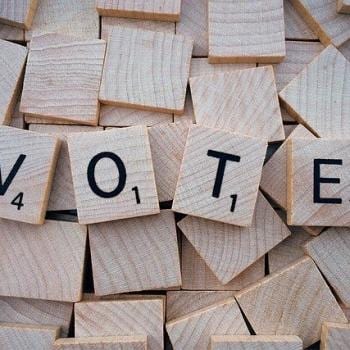1776 “Deep within his conscience man discovers a law which he has not laid upon himself but which he must obey. Its voice, ever calling him to love and to do what is good and to avoid evil, sounds in his heart at the right moment. . . . For man has in his heart a law inscribed by God. . . . His conscience is man’s most secret core and his sanctuary. There he is alone with God whose voice echoes in his depths.”
1777 Moral conscience,48 present at the heart of the person, enjoins him at the appropriate moment to do good and to avoid evil. It also judges particular choices, approving those that are good and denouncing those that are evil.49It bears witness to the authority of truth in reference to the supreme Good to which the human person is drawn, and it welcomes the commandments. When he listens to his conscience, the prudent man can hear God speaking.
1778 Conscience is a judgment of reason whereby the human person recognizes the moral quality of a concrete act that he is going to perform, is in the process of performing, or has already completed. In all he says and does, man is obliged to follow faithfully what he knows to be just and right. It is by the judgment of his conscience that man perceives and recognizes the prescriptions of the divine law:
It is important for every person to be sufficiently present to himself in order to hear and follow the voice of his conscience. This requirement of interiority is all the more necessary as life often distracts us from any reflection, self-examination or introspection:
- Return to your conscience, question it. . . . Turn inward, brethren, and in everything you do, see God as your witness.51
1780 The dignity of the human person implies and requires uprightness of moral conscience. Conscience includes the perception of the principles of morality (synderesis); their application in the given circumstances by practical discernment of reasons and goods; and finally judgment about concrete acts yet to be performed or already performed. The truth about the moral good, stated in the law of reason, is recognized practically and concretely by the prudent judgment of conscience. We call that man prudent who chooses in conformity with this judgment…
1783 Conscience must be informed and moral judgment enlightened. A well-formed conscience is upright and truthful. It formulates its judgments according to reason, in conformity with the true good willed by the wisdom of the Creator. The education of conscience is indispensable for human beings who are subjected to negative influences and tempted by sin to prefer their own judgment and to reject authoritative teachings.
So, you can think of a conscience as a little man with a pin if you’d like, but the Church is not particular about metaphor. The conscience is the part of us, given by God, which judges our potential and completed moral actions and decides what is right. Everyone has a conscience, and everyone must obey his or her conscience at all times, in great matters as well as little. No one should be forcibly prevented from obeying the dictates of their conscience, by the civil law or by anything else.
But here’s the thing: you have to form your conscience. You have to exercise prudence, which we’ve already spoken about in another blog post. You have to inform yourself about what is right and use prudence to decide how to do it. God is responsible for giving you a conscience, but you’re responsible for forming it. If you suffer from scruples and your conscience stabs you at night before bed, you should get whatever help you need to be free of that burden so that you can hear your conscience when there’s actually a moral decision to be made. If you find that your conscience has a far stronger reaction to one grave sin than another– if certain sexual acts horrify you but war crimes like torture are considered necessities, for example, or if shoplifting horrifies you but corporate theft is fine– then you have to train your conscience differently. You shouldn’t try to force yourself to feel a certain way, mind you. Conscience isn’t just a stabby feeling, it’s moral judgement, and trying to force a stabby feeling for every sin is not going to work. But when you find yourself sickened and ready to start a public protest about one grave matter, but cold and indifferent to another grave matter, you have to remind yourself that that’s a mistake of your conscience, and pray for prudence. You have to keep repenting of sin before it warps your conscience and lets you think that your habitual sins are okay. You have to work at your conscience.
By all means, vote your conscience in November, as Mr. Cruz has exhorted us. Voting is a duty. I’m certainly going to be voting mine. But listen to your conscience today in July, too. Let your conscience be your guide every month of the year– but remember, you also have to guide your conscience.
(Image via Pixabay)













